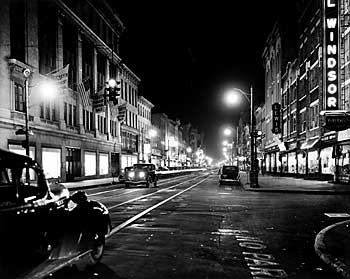you and the atomic bomb
Iftekhar Sayeed
“Considering how likely we all are to be blown to pieces by it within the next five years, the atomic bomb has not roused so much discussion as might have been expected.”
Thus begins George Orwell’s famous essay You And The Atomic Bomb (1945). Two bombs had just been dropped over Hiroshima and Nagasaki; a stunned world had witnessed their power. A shocked Bertrand Russell went on to write a book Has Man A Future? But the main question disturbing Orwell was: ‘How difficult are these things to manufacture?’ If they were very difficult to manufacture, then the state would be more powerful than the individual; if they were not difficult to manufacture, the individual could wipe out the state. That civilisation itself may be wiped out didn’t seem to bother him. He also mentions that the distinction between great states and small states would have been obliterated: Iran and North Korea would be on a par with the United States, and the Palestine Liberation Organisation with the state of Israel.
“And though I have no doubt exceptions can be brought forward, I think the following rule would be found generally true: that ages in which the dominant weapon is expensive or difficult to make will tend to be ages of despotism, whereas when the dominant weapon is cheap and simple, the common people have a chance. Thus, for example, tanks, battleships and bombing planes are inherently tyrannical weapons, while rifles, muskets, long-bows and hand-grenades are inherently democratic weapons. A complex weapon makes the strong stronger, while a simple weapon—so long as there is no answer to it— gives claws to the weak.” Thus we have a simple relationship: the more sophisticated the weapon, the more powerful the state, or the big state, and the less powerful the individual, or the small state.
Today we are living in a world of one big state and many small states and even stateless organisations such as the Palestine Liberation Organisation, Hamas, Islamic Jihad, the Chechens, the Liberation Tigers of Tamil Eelam....The balance may be tilted against these groups and the smaller states, but they are holding up remarkably well. The AK-47, the grenade, the missile launcher, the bazooka are all ‘democratic’ weapons, allowing small groups to take on the power of the state. But a new method of warfare has emerged which has gone a considerable way to leveling the powers of the state and freedom fighting organisations and other states. This is the - badly named – suicide bomber.
First, the name. The aim of the freedom fighter is not to blow himself up, but to kill as many people as possible without being detected. I am positive that, had the balance of power not been so tilted against him, he would have preferred to lob a grenade and scurry off to safety. Since the last route is not open to him he must needs blow himself up as well. Therefore, we can coin the term ‘self-annihilating freedom fighter’ or SAFF to denote these people. This would put them in a long line of fighters going back to the assassins – or hashishiyins – and the kamikaze pilots.
The zenith of the achievement of the SAFFs came, of course, on September 11th, 2001. What would George Orwell have made of the event? He was not much concerned with the loss of lives, civilian or military, in the essay mentioned above. “Had the atomic bomb turned out to be something as cheap and easily manufactured as a bicycle or an alarm clock, it might well have plunged us back into barbarism, but it might, on the other hand, have meant the end of national sovereignty and of the highly-centralised police state. If, as seems to be the case, it is a rare and costly object as difficult to produce as a battleship, it is likelier to put an end to large-scale wars at the cost of prolonging indefinitely a ‘peace that is no peace’. ” Clearly Orwell’s nightmare was a ‘peace that is no peace’. Indeed, the passive acceptance of an unjust state of affairs cannot be regarded as peace. Thus, if the Palestinians had merely concurred in their forcible eviction from their motherland, that is to say, if they had not taken up violent methods to make their plight felt, then the peace would have been no peace. It would have been collective slavery. “...looking at the world as a whole, the drift for many decades has been not towards anarchy but towards the reimposition of slavery. We may be heading not for general breakdown but for an epoch as horribly stable as the slave empires of antiquity.”
There has, in fact, been only one slave empire in antiquity – the Roman Empire, and even here Orwell is wrong. It was the Roman Republic that introduced slavery on a large scale, and it was under the Roman Empire that slavery began to disappear. There have never been any ‘slave empires’, only ‘slave democracy’ (Athens), ‘slave republic’ (Republican Rome) and ‘slave parliament’ (modern Europe). Although Orwell was wrong on this point, his broad argument can still be sustained if we add the adjective ‘collective’ before ‘slavery’. Clearly, the United States and Europe have engaged in what must be described as collective slavery. What are Palestinian refugees if not collective slaves? What are the Iraqis and the Afghans if not collective slaves? And what are we in Bangladesh if not that?
 It is interesting to note that the self-annihilating freedom fighter has emerged in democracies – the United States, Israel, India, Sri Lanka and Russia. This is a curious phenomenon and needs to be explained.
It is interesting to note that the self-annihilating freedom fighter has emerged in democracies – the United States, Israel, India, Sri Lanka and Russia. This is a curious phenomenon and needs to be explained.
 A democracy, by the sheer act of voting, legitimises its actions. America and Americans feel no guilt because they go to the polls; ditto Israel, India, Sri Lanka and Russia. And in a democracy, the majority rules. The majority in Israel is Jewish because the true majority were dispossessed. In Sri Lanka the majority rules with a heavy hand. But it is the act of voting that legitimises tyranny, and which is why the SAFF have proliferated in and around democracies. The power of the voter has translated into the powerlessness of the non-voter, the power of the voting majority into the powerlessness of the voting or non-voting minority or foreigner.
A democracy, by the sheer act of voting, legitimises its actions. America and Americans feel no guilt because they go to the polls; ditto Israel, India, Sri Lanka and Russia. And in a democracy, the majority rules. The majority in Israel is Jewish because the true majority were dispossessed. In Sri Lanka the majority rules with a heavy hand. But it is the act of voting that legitimises tyranny, and which is why the SAFF have proliferated in and around democracies. The power of the voter has translated into the powerlessness of the non-voter, the power of the voting majority into the powerlessness of the voting or non-voting minority or foreigner.
Democracies have created the modern ‘suicide bomber’.


